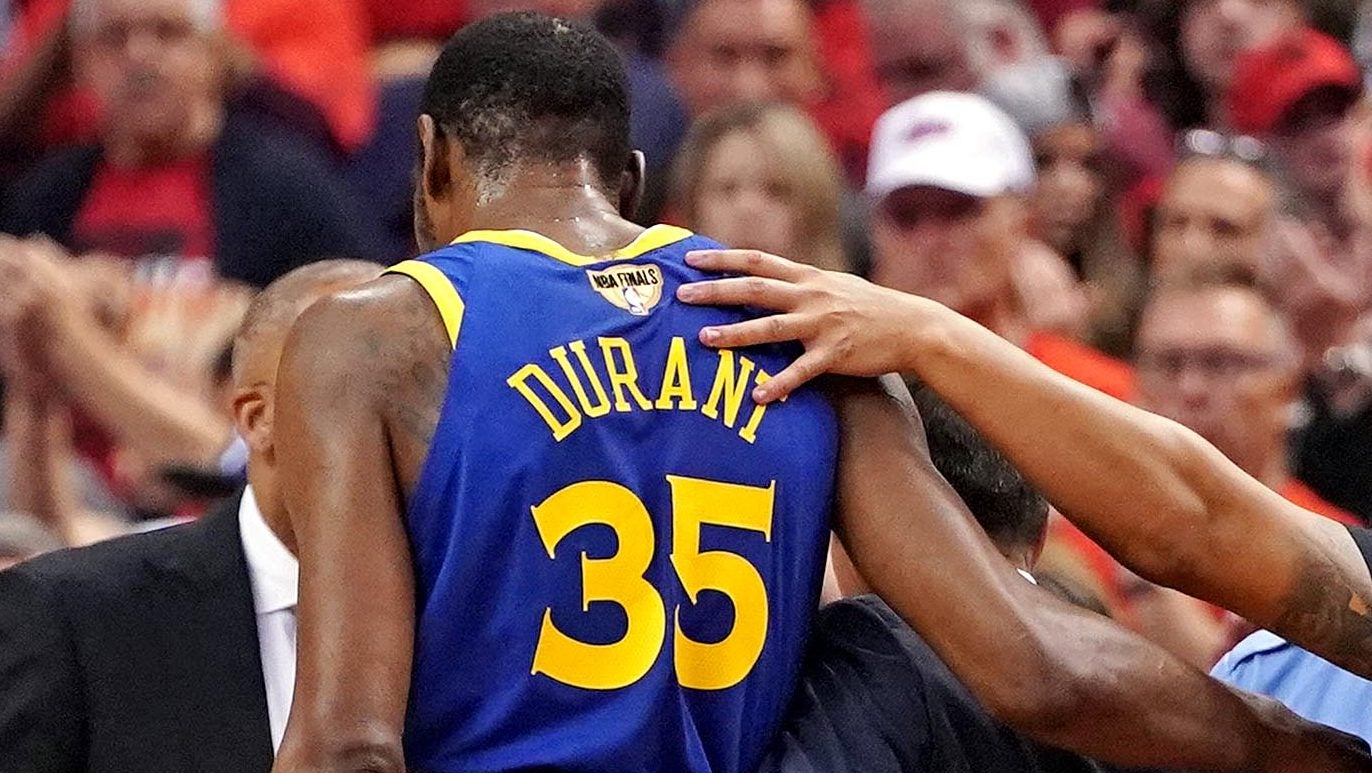Kevin Durant’s plight is highlighting the emotional toll of injuries on workers
After missing nine games due to an injury, Golden State Warriors all-star Kevin Durant was cleared to join his team and survived a June 9 practice without incident, leaving Warriors basketball fans ecstatic. Down 3-1 in the NBA championship series at the time, the team appeared revived the next evening and took game five against the Toronto Raptors.


After missing nine games due to an injury, Golden State Warriors all-star Kevin Durant was cleared to join his team and survived a June 9 practice without incident, leaving Warriors basketball fans ecstatic. Down 3-1 in the NBA championship series at the time, the team appeared revived the next evening and took game five against the Toronto Raptors.
But 12 minutes in, basketball’s leading athlete—“Golden State’s warrior in shining armor, the most efficient NBA Finals scorer ever,” as SB Nation put it—ruptured his Achilles tendon and hit the floor. Reporters looking for updates on Durant’s condition during half-time were asked to back off because emotions were so raw in the locker room.
Since then, sports media have focused on medical pronouncements, the calculations made by coach Steve Kerr to put Durant in, and the player’s free agent status in the league. The Athletic, however, struck a chord with a thoughtful piece (paywall) on Durant’s mental state, highlighting Toronto Raptors player Kawhi Leonard’s post-game comments. “I’ve been in that situation before. I hope he has a speedy recovery, and just gets healthy. And I hope that he’s going to be OK mentally, just throughout the whole rehab process,” Leonard told the press. “Because like I said before, we work so hard to either play in the Finals or just play in the NBA, and when you’re not playing, it’s hard to wrap your mind around it.”
The comment was “illuminating,” as the Athletic observed, because too often, in the midst of the pressure to put someone back to work, the culture of sports dehumanizes athletes, making managers, the league, and fans complicit in a cycle that leads to more fractures and torn ligaments. And the disregard continues after an accident; our attention stays on the understandable biomechanics of an injury, rather than the more complicated psychological consequences.
A similar dynamic is arguably often a factor in far less glamorous occupations. Construction workers find themselves in unsafe circumstances under pressure to meet deadlines and hit financial targets. The same goes for delivery drivers and assembly line laborers. Bloomberg reported that Tesla employees required nearly three times more time off for injuries in 2018 compared to the previous year, thanks to pressure to dramatically ramp up production. Meanwhile its in-house medical clinicians were accused of downplaying employees’ health complaints and sending workers back to the factory floor.
In several caring professions, workers must live with the risk of being bitten, punched, or worse, by those in their care. Doctors, nurses, first responders, and even teachers can all find themselves facing unpredictable behaviors.
All of these people, too, may struggle after being wounded. It’s not just elite athletes who can feel their identity is wrapped up in their work. People in all kinds of professions may be left feeling unmoored when forced to step away from their trade for an extended period.
Research shows that workers who are depressed one month after an injury may go on to suffer longer-term depression, and are at risk of serious mental-health complications. The likelihood of developing an addiction to painkillers or other substances rises.
But lucky workers will find their medical care comes with an embedded mental-health practitioner who understands and can guide them through the emotional work of recovery, including the initial grieving and the anxiety that an injury could happen again. And if companies need a strategic reason to seek more of these kinds of supports for workers, it’s there: The evidence makes clear that psychological and sociocultural support improves recovery outcomes for athletes and the rest of us.
Durant’s path back to his game is sure to be documented and dissected. If the conversation can dig into what he means when he says he’s hurting deep in his soul, as he declared on Instagram after game five, this injury might allow a wider audience to appreciate how one’s mind must follow its own process of recovery, and why workers should never be seen as mere bodies, before or after a physical blow.